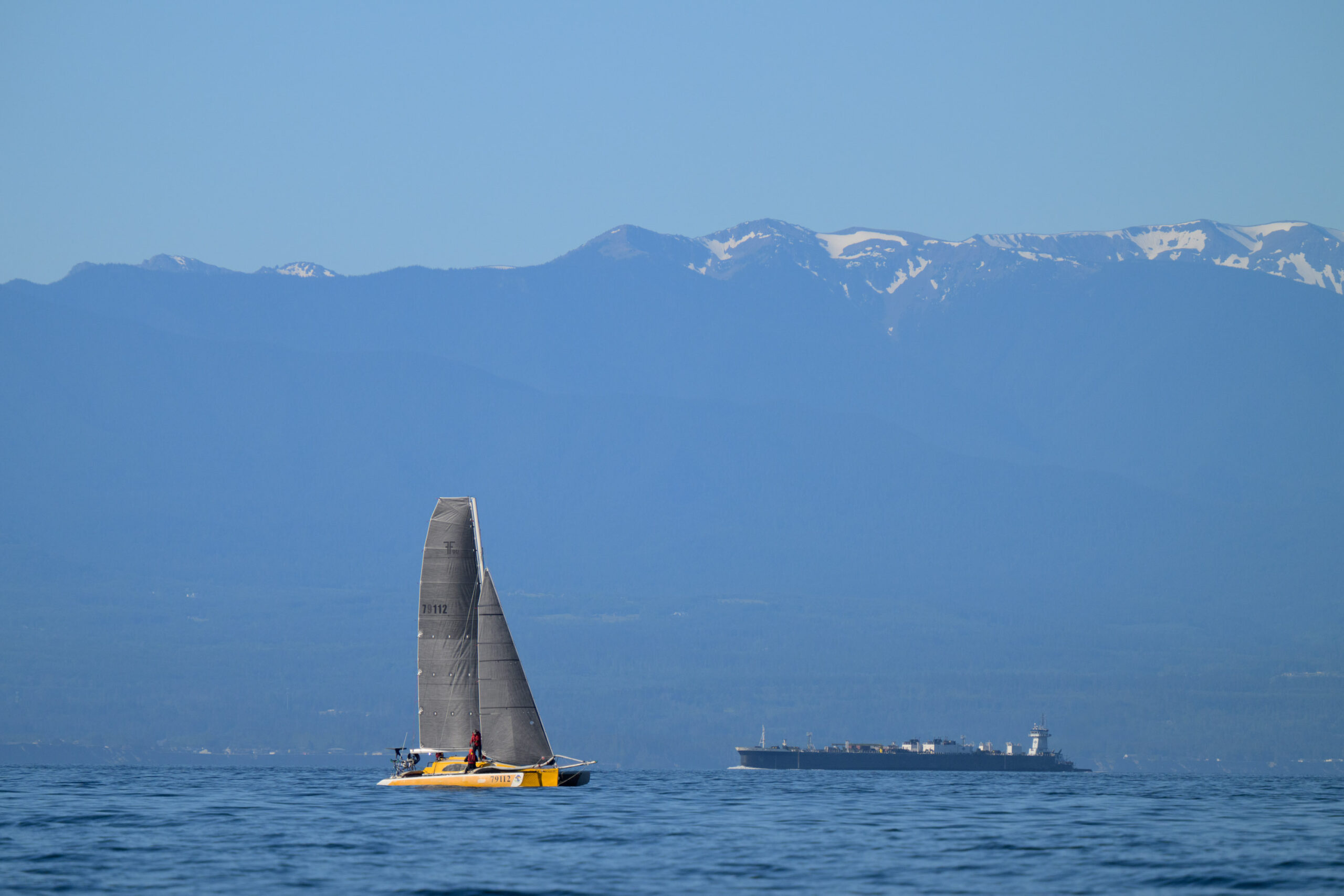
OFFICIAL RULES
More Important Than The Rules
R2AK isn’t a cutthroat competition. It’s the best way we know to spread the magic of human-powered, wind-driven adventure — and to prove that big adventure is possible on almost any budget.
Be excellent.
By entering, you’re affirming integrity. You believe how you do something is just as important as what you accomplish.
Sure, you could eat your way to Alaska on a cruise ship – but that’s not what this is about.
R2AK was created to reduce the constructs to a bare minimum, trusting in the self-reliance, seamanship, and honor of our participants rather than relying on enforcement of an artificial body of rules. The spirit of this race lives in the camaraderie of the racers and the unwavering impartiality of the elements.
In short: we’re all in this together, and nature bats last.
The Actual Rules
Rule 1: Get a boat and remove the engine (if it had one in the first place)
Kayaks, rowboats, canoes, sailboats, SUPs, pedal craft – we’re okay with all of these – and most other wingnut ideas you might have. Just no engines – not even “just in case”.
Size of boat doesn’t matter and you can bring as many crew as you want as long as all of them are on for the whole race- no switching out. Route choice and boat selection are key strategies of R2AK. But remember:
Just because you can do something doesn’t make it a good idea.
You’re on your own out there, and if a rescue is even possible it could be days away – err on the side of caution.
Rule 2: Start in Port Townsend
The first stage of the race is the sprint across the border to Victoria, British Columbia – 40 miles away across the exposed and notoriously rough Strait of Juan de Fuca. We call this The Proving Ground, and we’ll have more of a safety structure in place for the first stage in case things get hairy. You’ve got 36 hours to finish this leg. The second stage has no race specific safety net.
The Proving Ground is not a race, and you can’t win it. But you CAN lose.
If you make it to Victoria without assistance then you’ve qualified for the second stage, which starts two days later. We don’t hate you. We’ll give you a little time to fix your boat and reconsider the race entirely.
Rule 3: Travel Unsupported
This means no support boats, no food drops, no guy you call for information or that other guy you hired to stand on the shore and hand you cups of Gatorade. The deal is that you can have help along the way, just nothing you pre-arranged and whatever you do has to be available to the other racers too.
Rule 4: Finish one of three ways:
1. Do the short course and finish in Victoria
The Proving Ground is a qualifier for those continuing on and is a great option as a skill builder, a trial run for folks considering the full race for the future. However, any team wishing to enter for just the Proving Ground will be vetted as though they are doing the full race. The Strait of Juan de Fuca is … real.
2. Finish in Ketchikan
Go for the glory! Do the full monty within the time allowed:
750 miles from PT to AK, passing through two waypoints at Seymour Narrows and in Bella Bella, all before the sweep boat catches you or DAY DONE rolls around.
3. Meet the Grim Sweeper.
The Grim Sweeper, our sweep boat, will begin rolling north from Port Townsend at some point (details in the Race Packet), and if you get passed, you’re out of the race.
Rule 8: If we need to call our lawyer to decide if you are disqualified, you are disqualified.
(This rule is very real – stay away from the grey areas and you’ll never cross the line.)
Need more specific info?
A few things that might help your race planning here:
The Race Packet. Read it.
Hit up the Race Forum. It’s the best place to ask questions and get them answered.
Refund Policy
Read our Cancellation Policy here.

